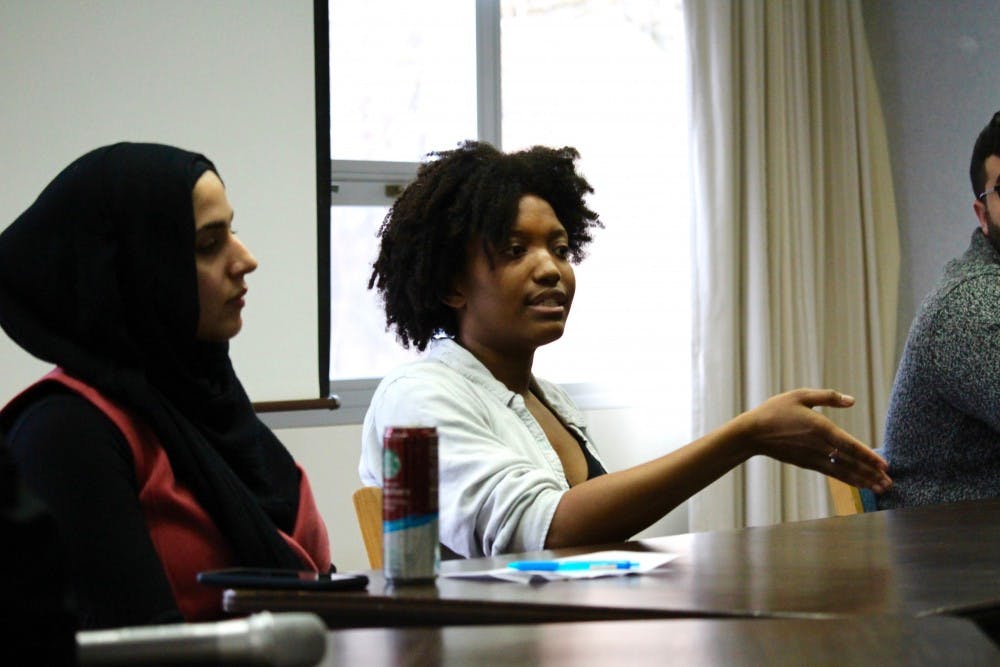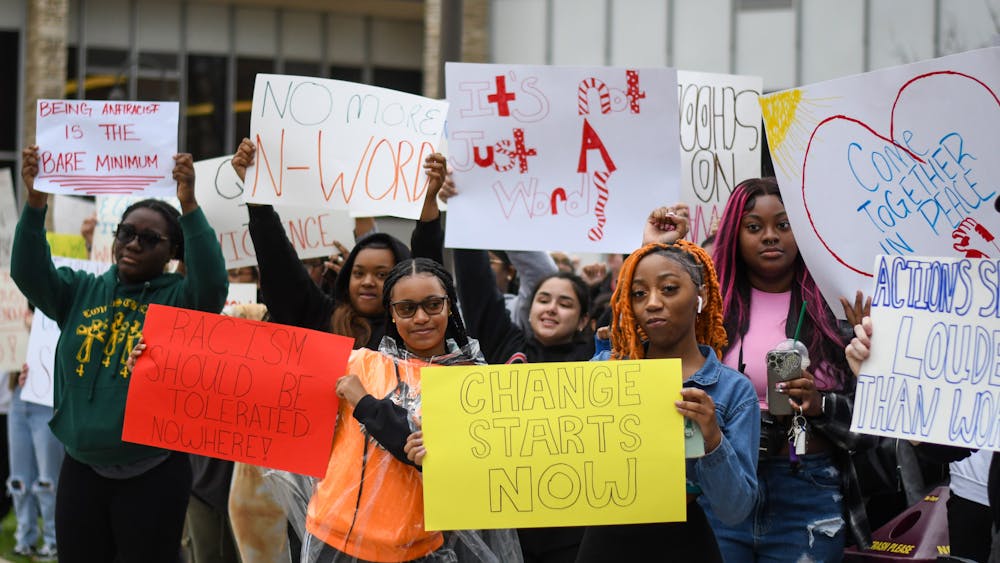'Cocoa and Consent' raises awareness for consent issues, domestic violence

Sexual Agression Peer Advocate, Muskegon junior Osha Towers, participates as a panelist for "Cocoa and Consent" on Mar. 20 in the Bovee University Center's Chippewa, Maroon, and Gold Rooms.
Roughly 60 students gathered to discuss the relationship between domestic violence and lack of consent to physical intimacy on March 20.
While sipping hot chocolate in the Bovee University Center’s Maroon, Gold and Chippewa rooms from 6 to 7:15 p.m., attendees were able to openly discuss consent issues at Alpha Chi Omega sorority “Cocoa and Consent” event. Students had the opportunity ask panelists questions that they might not have felt comfortable asking in an everyday environment.
Eight panelists led the discussion, representing a range of organizations including the Mount Pleasant's Women's Aid Service and CMU’s Office of LGBTQ Services.
“Cocoa and Consent” event began with a viewing of “Tea Consent,” a 3-minute-long YouTube animation that compares consent of physical intimacy to offering someone a cup of tea.
A person may consent to having a cup of tea at first, and then decide they're not interested, the voiceover described.
"Sure, that's kind of annoying as you've gone to the effort of making that tea,” the animation stated. “But they remain under no obligation to drink the tea."
After the YouTube showing, the session was open for discussion. The panelists were immediately asked to give their individual definition of consent.
"It is not the lack of ‘no’, but the presence of ‘yes,’" said Rihan Issa from the Isabella County Women's Aid Service.
Detroit senior Alison Kozerski echoed her sentiment. The former Alpha Chi Omega philanthropy chair and panelist member added that there can be no "gray area" when determining whether consent is clear.
In concordance with Alpha Chi Omega's philanthropy week theme, discussion at the event centered around how consent ties in with domestic violence.
“Domestic violence is driven by power and control," said Ally Gajsiewicz, a staff member at Shelterhouse, a Midland-based non-profit that provides shelter, advocacy and counseling to domestic violence and assault survivors.
Abusers are not interested in acknowledging their partner’s consent for physical intimacy, she continued.
When the audience raised questions regarding concerns they had for friends suspected to be in unsafe situations, the panelists took time to consider the most effective response.
They encouraged students to teach friends and peers what a healthy relationship looks like and to connect them with available resources, such as the Women's Aid Shelter and Shelterhouse.
On average, victims attempt to leave their abusers seven times before successfully escaping violent relationships, Gajsiewicz said. She urged students to practice patience when helping loved ones.
For additional information on consent issues, the panelists suggested watching “The Hunting Ground,” a documentary available on Netflix. They also recommended reading “Missoula: Rape and the Justice System in a College Town,” a book written by Jon Krakauer.
Anyone who suspects themselves or loved one to be a victim of domestic or sexual violence, can call the Isabella County Women's Aid Service at (844) 349-6177 or Shelterhouse at (877) 216-6383. Sexual Aggression Peer Advocates is available on CMU’s campus at sapa@cmich.edu to schedule one-on-one meetings. SAPA is also available 24 hours a day at (989) 774-2255 and online atsapa.cmich.edu.




